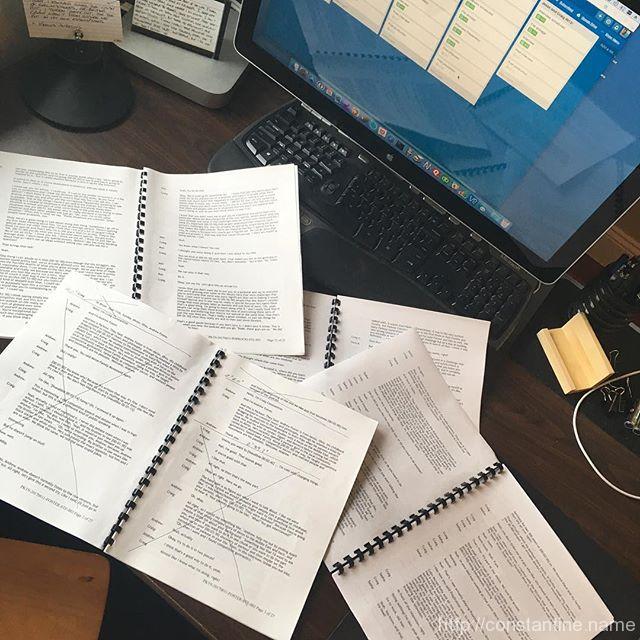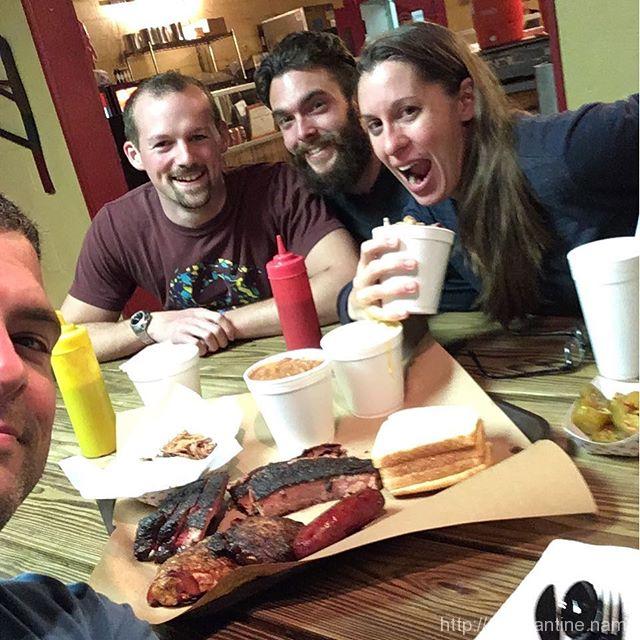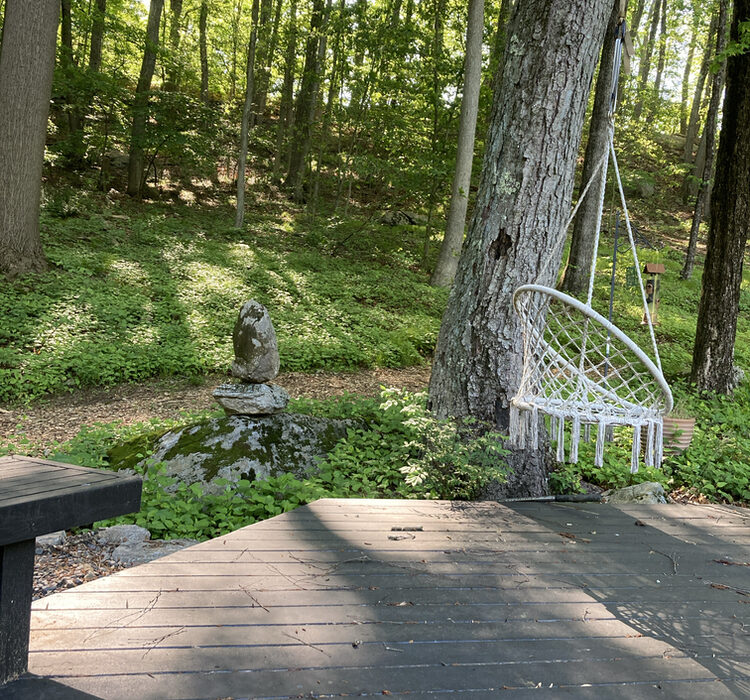…as we flee the discomfort of the wild without, so we flee those of the wild within, estranging ourselves from the power and beauty of the uncharted life…
~ Bryan Ward from, What Happens When Men Flee The Wild
slip:4utiai4.
ɕ
…as we flee the discomfort of the wild without, so we flee those of the wild within, estranging ourselves from the power and beauty of the uncharted life…
~ Bryan Ward from, What Happens When Men Flee The Wild
slip:4utiai4.
ɕ
The un-examined cake will bury you in a never-ending steady stream of slow debris, your life wasted in lower-order, derivative problems.
~ Bryan Ward from, What Happens When Men Shirk The Deep Fix
slip:4utiai5.
ɕ

Episode 7 is already off to sound editing, and the next FOUR episodes after that are already recorded! At this point, I could really use your help taking this project to the next level. The podcasts will ALWAYS be free to listen, but please consider supporting us on Patreon.com for any amount you are able to spare. #patreon
update: Wait, what podcast? …the “Parkour, They Said” Movers Mindset podcast!
ɕ

Regular tables don’t survive. This has been just a pile of Kee clamps on my work bench for about a year. Oof! Burly table.
ɕ

Proper Texas bbq on my last night.
ɕ
I don’t count my sit-ups. I only start counting when it starts hurting. When I feel pain, that’s when I start counting, because that’s when it really counts.
~ Muhammad Ali
slip:4a88.
(Part 52 of 72 in series, My Journey)
When the ‘me’ is obliterated by fear or the demands of immediate survival, action is no longer constrained by social forces, and the individual is left with a sense of self-determination. […] Behavior in edgework appears to the individual as an innate response arising from sources deep within the individual, untouched by socializing influences”
~ Stephen Lyng from, Edgework, 2004
A couple years ago I tried to write something explaining what exactly it is about practicing parkour that I like so much. It turns out others are way WAY ahead of me. Julie Angel (you have read Cinè Parkour, right?) talks a bit about “edgework”; The idea of negotiating the “edges” between things like consciousness/unconsciousness, sanity/insanity, and life/death. Others (H.S. Thompson and Lyng) have talked about “edgework” in depth.
And I agree. My experience is that being in the parkour practice — even just the visceral edges where I’m pushing my physical limits while exposing myself to only manageable levels of risk — just totally strips away all the context of my work-a-day life. Everything — all the way down to my thoughts — everything falls away.
My martial arts teacher has a great phrase related to edgework: No this. No that. No delay.
ɕ
The reason slavery was able to last so long is that the 13th Amendment has a loophole. (Did you notice it? It went right past me.) The loophole is “except as a punishment for crime whereof the party shall have been duly convicted”. So if you can rig the local laws and get the cooperation of the local law enforcement and court system, you can convict people of “crimes” pretty much whenever you want.
~ Doug Muder from, Slavery Lasted Until Pearl Harbor
slip:4uwesa1.
ɕ
And I urge you to please notice when you are happy, and exclaim or murmur or think at some point, ‘If this isn’t nice, I don’t know what is.
~ Kurt Vonnegut
slip:4a148.
(Part 3 of 72 in series, My Journey)
Getting done right does not mean getting done slow. Getting done right means getting done fast. You will go faster if you do things right. You will go faster if you come down off the “high” generated by the illusion that effort is speed. You will go faster if you calm down, follow your disciplines, and refuse to rush.
~ Bob Martin from, «http://blog.8thlight.com/uncle-bob/2013/03/11/TheFrenziedPanicOfRushing.html»
While he’s talking about software development in general, and test-driven development specifically, this is true for – I think – everything. My experience is that this is true for software development, and other technical work. But it is also true of martial arts practice, parkour, games, building model airplanes… you name it.
The pervasive admonishment should be “do it well,” rather than, “slow down.” Do it well and you’ve – by definition – done it as fast as possible. What’s the point of doing it poorly? What’s the point of rushing to completion; If you didn’t do it well, then it’s not done.
ɕ
Too often we are embarrassed to admit that we don’t understand what we are told. We don’t want to appear stupid to the speaker or others in the audience. But more people should ask questions, because others may be just as confused but not want to speak up. There is no shame in not understanding something, and it’s a good lesson to remember that. Asking for clarification not only helps both the speaker and listener communicate more effectively, it is also a powerful tool in revealing bullshit.
~ Ben Bradford from, The Wisdom of Not Understanding
slip:4uciso1.
Bradford starts off talking about a terrible, new-agey, pseudo-science film which a friend was discussing with him. I’ve had that same conversation, about the same film. So I understand what he’s saying, and I understand the point he’s making. My issue with his assertion is that he doesn’t seem to make the distinction between when one doesn’t understand something versus when one doesn’t understand someone.
This is an important distinction. When one encounters something dubious, confusing, or questionable, (such as the movie What the Bleep Do We Know,) admitting lack of understanding can lead to self-improvement. (yeah!)
[ walking out of a theatre ]
“Craig, what did you think of the movie?”
“Dude, I’m totally confused. How could Rosebud have been [redacted]? How did I miss that?!”
[ …conversation goes on. Happy friend. yeah! ]
On the other hand, when one encounters someone espousing dubious, confusing, or questionable ideas, one must tread carefully. Unilaterally saying, “I don’t understand,” to friends and family will come across as a back-handed insult. They will interpret, “I don’t understand,” to imply, “you are not making sense,” or worse, “you are stupid.” Bye-bye friends and family. (boo!)
[ entering the coffee shop ]
“Hey Craig, I saw this great movie! It was about a [redacted] named George Orwell and it was looking for some a citizen named Rosebud.”
“Dude, I’m totally confused. How can [redacted] be named George Orwell… I thought he wrote the movie script?”
[ …reflects negatively on friend. Friend is unhappy. boo! ]
Suddenly, (awesome film by the way,) I have to either smile and bear the nonsense, or start picking the nonsense apart bit by bit until my friend realizes they are confused and don’t understand.
I’ve sometimes, (often?,) been accused of lacking social skills. Nay, I suggest that some people’s signal-to-noise ratio is low, and I am simply not interested in fixing everyone I encounter.
(See also Megalomania. But, then, also Imposter Syndrome.)
ɕ
…to anyone who has ever wondered if using m4 macros to configure autoconf to write a shell script to look for 26 Fortran compilers in order to build a Web browser was a bit of a detour, Brooks’ book offers well-reasoned hope that there can be a better way.
~ Poul-Henning Kamp, “A Generation Lost in the Bazaar“, CACM vol 55.10
slip:4uaode1.
The article is a scathing condemnation of, well, an entire generation of programmers. There is merit to Kamp’s criticism, but he’s thrown the baby out with the bath water.
The explosive growth “of IT”, (as Kamp calls it,) in the last 15 years was made possible by the behavior and activities he’s condemning. The pendulum is, in my opinion, now swinging in the direction of “craftsmanship” and “professionalism”, and the chaos is settling out. I’ve encountered several projects where a small group of people, operating ala Raymond’s “bazaar” have undertaken replacing foundations of things for the right reasons.
We still build “cathedrals”. The definition of “cathedral” has simply been improved.
Brooks, F. The Design of Design. Addison-Wesley Professional, 2010
Raymond, E. The Cathedral and the Bazaar. O’Reilly Media, Sebastapol, CA, 1999
ɕ

“When was the last time you dug a ditch, baby?!”
ɕ
It turned out in retrospect that the messy diversity of the forest had been the source of its resilience. When stresses such as storms, disease, drought, fragile soil, or severe cold struck, a diverse forest with its full array of different species of trees, birds, insects, and animals was far better able to survive and recover. A windstorm that toppled large, old trees would typically spare smaller ones. An insect attack that threatened oaks might leave lindens and hornbeams unaffected. The rigidity and uniformity of the system meant that failures were not small and contained but systemic.
~ Tiago Forte, from Productive Disorder: The Hidden Power of Chaos, Noise, and Randomness
slip:4ufobo11.
I’m simply stuck, staring at: “The rigidity […] of the system meant that failures were […] systemic.” I’m filing this under Stuff I Wished I’d Learned 30 Years Ago. I often say that I use systems and structure as a way to multiply my efforts. And that’s true. But I’ve learned that the real reason is that I’m afraid. The big why behind my hyper-organization, maximally-complex systems, and endless aligning of figurative ducks is my desperately trying to control the world around me. With realization comes… the recognition that I have a lot more work to learn to not do.
ɕ
In this modern age, very little remains that is real. Night has been banished, so have the cold, the wind and the stars. They have all been neutralized: The rhythm of life itself is obscured. Everything goes so fast and makes so much noise, and men hurry by without heeding the grass by the roadside, its colour, its smell and the way it shimmers when the wind caresses it. What a strange encounter then is that between man and the high places of his planet!
~ Gaston Rébuffat
slip:4a1550.

Things were quiet the morning after coaching and volunteering at the 2025 Move NYC event. Coffee. Chill morning air. Sun rising through the trees. A snapshot to remind myself that sometimes I do get the rare privilege to be able to literally address the sun with sun salutations. And although I can stare at anything while meditating, when I find moss-covered balanced stones also in the direction of the rising sun… sublime. Thanks Ruby and Jesse!
ɕ
What happens when faith, logic, and vulnerability collide in a personal search for truth?
Cassian Bellino has turned personal doubt into a public quest for answers interviewing scholars about Christianity.
I think just, over time, you really understand that God invites these questions because He doesn’t want us to live blindly or have blind faith.
~ Cassian Bellino (36:55)
The conversation explores the origin and evolution of Cassian’s podcast, Biblically Speaking, focused on asking scholars direct, often difficult questions about Christianity. It begins with her internal conflict—wanting to live as a Christian while not fully understanding or agreeing with the faith—and follows her decision to start a podcast to resolve those doubts through dialogue. Cassian’s podcast is a place for intellectual exploration, built from personal curiosity and a desire for logical clarity rather than blind faith.
The discussion touches on content strategy, emotional challenges, and the mechanics of sustaining a solo creative endeavor. Cassian recounts her journey through building community platforms, hiring coaches, learning software systems, and dealing with burnout. Marketing, guest outreach, and pre-call preparation processes are shared in detail, alongside reflections on episodes that felt like failures but later proved meaningful to listeners. Throughout, the conversation centers on the power of asking questions and trusting intuition to guide the creative process.
Takeaways
Starting with doubt — A podcast was born from unresolved questions about faith and a desire for logical understanding.
Living authentically — The tension between personal beliefs and behavior pushed a transformation toward integrity.
Faith as inquiry — Rather than blind acceptance, the creator invites and pursues questions to deepen belief.
Community encouragement — Support from family and friends played a pivotal role in catalyzing the podcast’s launch.
No formal training — The project began without vision, planning, or marketing infrastructure, yet succeeded organically.
Scholarly access — Professors were invited via public contact information, creating opportunities for deep conversations.
Iterative development — The podcast and related projects grew through trial, error, and continuous refinement.
Strategic pivoting — Several initiatives were launched and later shut down based on response and sustainability.
Emotional cycles — Creative highs and lows are acknowledged as normal and are met with grace and reflection.
Guest preparation — Pre-calls, topic selection, and clear expectations ensure productive and respectful interviews.
Mismatch recovery — A seemingly misaligned episode later proved invaluable to a listener, showing the value of publishing anyway.
Platform building — Tools like Go High Level, automated funnels, and lead magnets were adopted through hands-on experience.
Future expansion — Plans include more complex episodes with multiple guests and potential sponsorship monetization.
Audience insights — The content resonates strongly with stay-at-home mothers and reflective older men.
Constructive doubt — A major theme is that God welcomes questions and wants people to understand their faith deeply.
Resources
bibspeak.com — The Biblically Speaking podcast’s official website, with guides and merchandise for its audience.
@thisisbiblicallyspeaking — Instagram
@thisisbiblicallyspeaking (TikTok) — TikTok
Biblically Speaking Podcast — YouTube
Go High Level — Platform used for building funnels, automating email, and managing community outreach.
intro.co — Platform used to connect with podcasting coaches and mentors.
testimonial.to — Tool for collecting and displaying user testimonials.
The Hansel and Gretel Code — Curtis Cates’s podcast mentioned by Craig that explores intuitive storytelling (particularly episode 31, The Power of Plan B.)
David Wasicki — Podcast coach mentioned by Cassian, who provided guidance on branding and emotional support.
(Written with help from Chat-GPT.)
ɕ
There’s a pretty obvious incentive at play when companies have the ability to unilaterally alter how their products work after you buy them and you are legally prohibited to change how the product works after you buy them. This is the first lesson of the Darth Vader MBA: “I am altering the deal. Pray I don’t alter it any further.”
~ Cory Doctorow, from Pluralistic: Brother makes a demon-haunted printer
slip:4upupi1.
There are many wrongs to right in the world. This one “small” legal wrinkle doesn’t seem like a big deal at first glance. And then…
ɕ
In a word, Senecan joy comes from within, from a good person’s own character and conduct: it arises from goodness itself and from right actions that one performs. This means that joy will not always be a matter of smiles and laughter, for good actions may be difficult and unpleasant: one may have to accept poverty, endure pain, even die for one’s country. A good person does these things only when they are right, and only for that reason, but the doing is itself a good and a reason to rejoice.
~ Margaret Graver and A. A. Long from Letters on Ethics
I don’t understand how we got to the common definition of “stoic”—the suppression of emotions. It’s a shame, because Stoicism is literally the opposite of suppressing one’s emotions. Emotions and reason have their right place. Stoic joy.
ɕ
However, the amount of discomfort and whether people agree to the possibility in the first place are essential to ethical practice. I contend that sayings like ‘It has to get worse before it gets better’ often gloss over the reality that some meditations and therapies simply don’t work for everyone, while others are actively harmful. So, when is getting worse a sign that ‘the process’ is working, and when is it an indicator that the approach is unhelpful or even harmful?
~ Nicholas Van Dam, from In therapy or meditation, is it normal to feel worse at first?
slip:4upyie21.
I had bookmarked this a while back after reading it. I was reminded of it as I sat in a warm patch of sun meditating this morning. For me, the sort of meditation I practice—every day, as best I can—is absolutely helpful.
ɕ